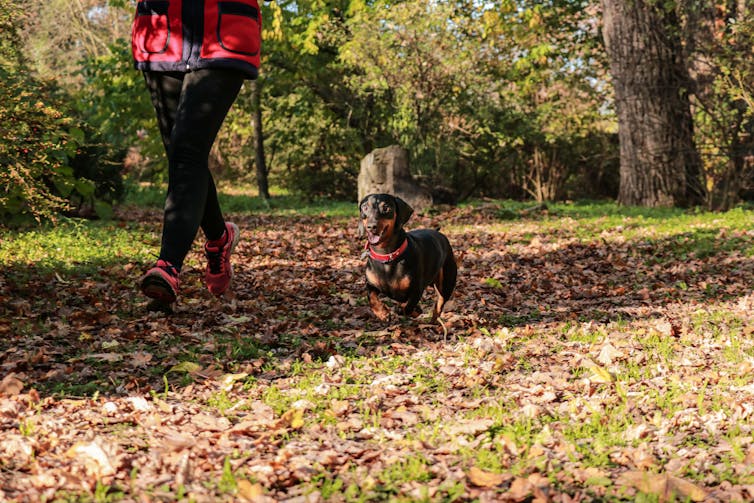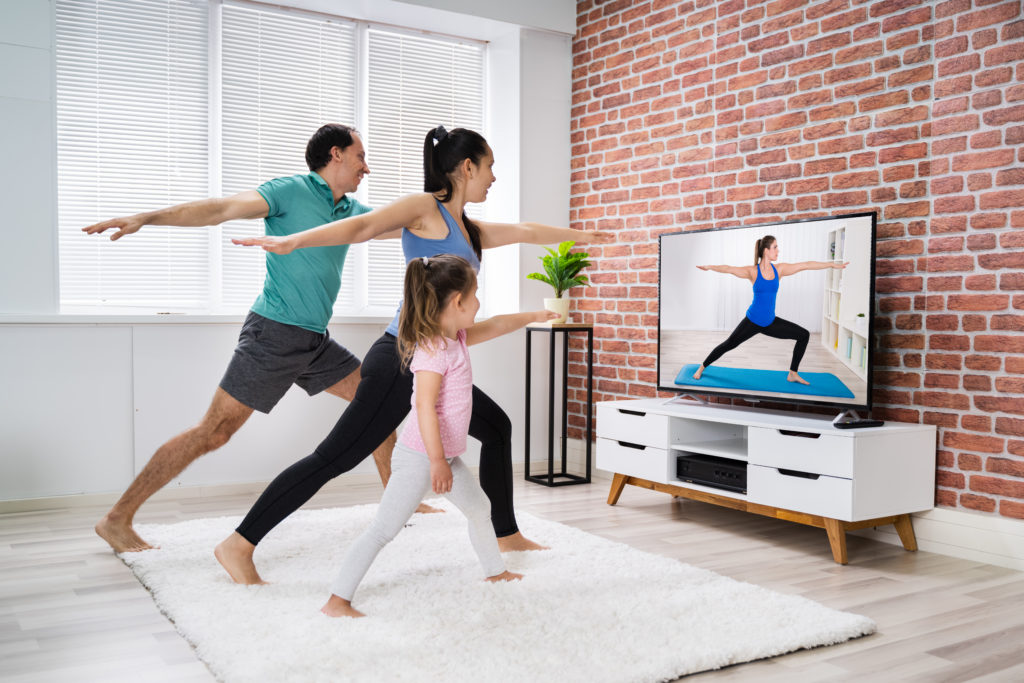Exercising more is one of the most common new year resolutions people make. But more than a quarter of people fail to keep their resolutions, and only half maintain some of them.
But if that still sounds daunting, here are five tips that may help you better keep exercising if that’s your goal this year.
1. Have a plan and an end goal
Resolutions can be great – don’t let me discourage you. But when you start out, set both your lofty goal, and a firm roadmap of the steps you need to follow to get there. This will help you maximise your odds of success in reaching that goal.
Want to run 2,021km in 2021? Breaking this larger goal down would mean you should plan on running 5.5km a day (every day) or about 8km every day before work if you work Monday-Friday. But also consider what happens if you get an injury – do you have redundancy built into your plan? You should also plan breaks to prevent overtraining.
Research shows that by combining ambitious goals with multiple achievable sub-goals, you’re more likely to be successful. Being able to tick off the goals as you go may also give you a positive motivational boost to keep going.
2. Don’t take up running (unless you enjoy it) or you won’t keep exercising
Running is great. Almost anyone can do it, it’s great for the whole body, requires minimal equipment and you can do it almost anywhere. Running also improves cardiovascular health and bone density. That said, I hate running – so I don’t do it.
People often ask what type of exercise they should do, and I typically tell them that the answer depends on what they enjoy doing. This is because you’re much more likely to keep doing exercise you enjoy over activities you find yourself dreading.
And somewhat surprisingly, research shows that it doesn’t seem to matter what type of exercise you do when it comes to health and longevity – as long as you’re exercising you’ll see benefits. Resistance training, aerobics, high-intensity interval training (HIIT) and possibly even yoga may all stimulate your body in different ways, but have positive outcomes in terms of health and longevity – especially when combined together.
But if you do want to take up jogging, you can also keep yourself motivated by joining group events – such as parkrun.
3. Get an exercise buddy
When England first went into lockdown in March, I started a new exercise programme with my partner. Nine months later, we’re still both stuck at home and still exercising together six days a week. That peer encouragement, motivation and occasional guilt trip from my better half has really helped.
And plenty of research shows that starting a new exercise programme with someone else will help you both to maintain your regime in the long term. This could be because the external peer pressure is helpful, or possibly because the positive social interactions from exercising with others makes it more fun.

Daily lunchtime walks with someone in your bubble, the whole flat doing morning yoga before the workday starts, or weekday football with you mates are all great ways to help you start exercising in the new year – and stick to that goal. And since exercise is “infectious”, starting a new type of regular activity may motivate those close to you to join in too. So, even if you can’t convince your flatmate to start with you, you might end up getting them to join in and you’ll both benefit.
4. Remove as many barriers as possible
What are the things that stop you from going for a walk, or to the gym? Is it because you’re too busy? Schedule time. Is it too expensive? Look for cheaper alternatives such as park exercises or YouTube workouts.
Identifying the barriers keeping you from achieving your goal will allow you to figure out what you can do to prevent them from stalling your progress.
5. Get a dog
This last one isn’t for everyone – I get that. But multiple peer-reviewed papers suggest that dog owners live longer. We do know that dog owners walk about 3,000 steps more per day, so it could be a simple as being more physically active than non-dog owners.
If you don’t have a dog, try thinking of reasons to walk more anyway. Small amounts of physical activity done throughout the day really do add up. Things like avoiding the lift and taking the stairs a few times per day or standing up every ad break really does lead to positive changes over time.
Exercise is good for, and will help you live a longer and healthier life. Even if you think you don’t like exercise, perhaps you just haven’t found the right type yet. And if that’s not the case, breaking your goals down, removing any barriers and finding a buddy (with two legs or four) to exercise with will help you maintain your new exercise routine throughout the new year.
Bradley Elliott, Lecturer in Physiology, University of Westminster
This article is republished from The Conversation under a Creative Commons license. Read the original article. https://counter.theconversation.com/content/152472/count.gif?distributor=republish-lightbox-advanced

